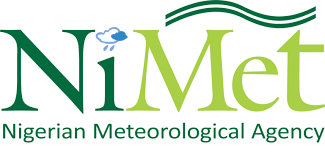The World Meteorological Organisation (WMO) and the Nigerian Meteorological Agency (NiMet) have stressed the need for enhanced action to protect lives, properties and livelihoods against severe weather caused by climate variability and change events.
The duo made the call Friday at the event organised to commemorate World Meteorological Day 2024 in Abuja, with the theme, “At the frontline of climate action”.
The Secretary-General of the WMO Professor Celeste Saulo, said that the recent fluctuations in the weather witnessed in Nigeria, during this transition from dry to rainy season clearly demonstrate the extreme weather events that are faced worldwide.
He noted that the shifting weather phenomena from heat waves, thunderstorms and thick dust haze happening within a short period, are indicative of a changing climate.
To this end, Saulo, who was represented by West and Central Africa WMO, Bernard Gomez called on NiMet to be more vigilant and for communities to be responsive to weather forecasts and alerts.
He stressed: “The Early Warnings for All” initiative embarked on perfectly complements this theme. It underscores the vital role of accessible, timely weather information in saving lives and livelihoods.
“From farmers planning their harvests to communities preparing for extreme weather events, early warnings empower informed decision-making.
“Resilience to climate shocks can be achieved. The various forecasts and warnings issued by NiMet are just the starting point for this to happen in the entire country.
“Next is the adoption and implementation of the National Framework for the Application of Climate Services (NFACS) in Nigeria.”
Also, the Director General, NiMet, Prof. Charles Anosike, said thus year’s team was a call for collective resolve towards harnessing the power of weather and climate information for the betterment of humanity.

He added that from providing accurate weather forecasts to mitigating the impacts of natural disasters, as well as building climate resilient societies, NiMET remains steadfast in its commitment to safeguarding lives, property, and livelihoods across the country.
Anosike said: “Through our extensive network of observation stations, research and training facilities, forecasting capabilities and in pursuit of early warning for all, we keep striving and innovating to deliver timely and reliable meteorological services to all socio-economic sectors.
“However, as we reflect on the progress we have made, we must also acknowledge the challenges that lie ahead. Climate change poses an existential threat to our planet, exacerbating extreme weather events, disrupting ecosystems, and endangering vulnerable communities. “

